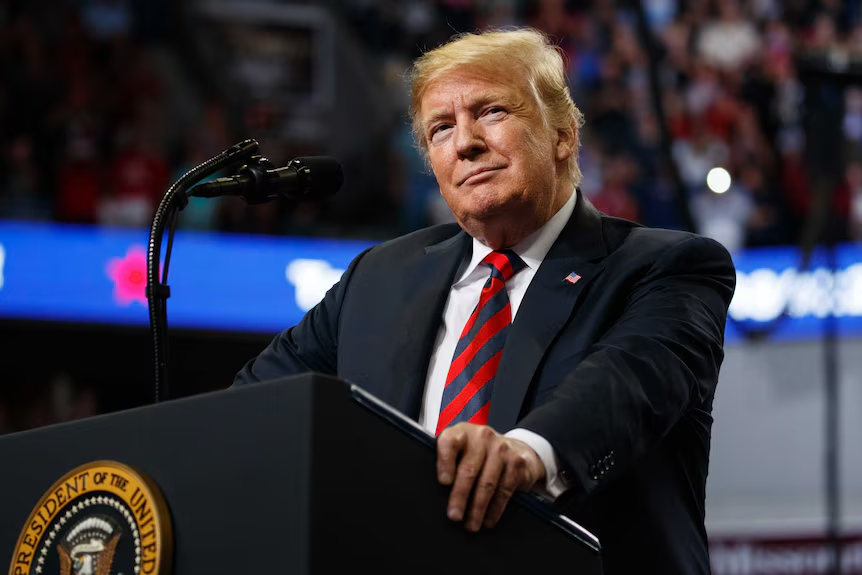In the wake of a stirring address by former Nigerian President Olusegun Obasanjo, Jason Miller, former senior adviser to U.S. President Donald Trump, took to the stage at the 32nd Afreximbank Annual Meetings with a message that resonated deeply with the room full of African policymakers, business leaders, and financiers. Miller’s keynote speech underscored a powerful, forward-looking vision for Africa’s economic transformation, one fueled not by foreign aid or charity, but by strategic private investment and structural reforms.
Miller began by highlighting the increasing involvement of the U.S. Development Finance Corporation (DFC) across the continent. “There will be DFC activity in dozens of African countries,” he said, emphasizing that these were not “handouts,” but purposeful investments designed to build critical infrastructure and stimulate wealth creation.
This marked a distinct shift from decades of aid dependency to a model where investment and partnership drive sustainable growth.
YOU CAN ALSO READ: Obasanjo Charges Nigeria, Egypt, Others to Take Charge of Africa’s Future
Echoing concerns raised by Obasanjo moments earlier, Miller pointed out that major American investment giants like Vanguard, BlackRock, and PIMCO are poised to commit capital to African ventures—but only under strict conditions. “These firms manage retirement portfolios. They won’t gamble unless there is transparency, enforcement of contracts, and a determined fight against corruption,” Miller noted. “The rule of law is not negotiable if Africa wants to attract the scale of investment needed to change its economic landscape.”
The former Trump adviser also offered practical advice for African leaders navigating high-level diplomacy, especially in dealings with the former U.S. president himself. “If you’re going to meet Donald Trump, follow him on social media,” Miller said with a wry smile. “He tells you what he’s thinking. It’s no use going just for a photo-op. You must come prepared, with clear asks and a willingness to negotiate.” He then shared a succinct message from Trump: “Everyone wants to do business with the United States. If you treat us well, we’ll treat you well. It’s about reciprocity and mutual respect.”
Beyond diplomacy, Miller emphasized the crucial role that Africa’s private sector leaders must play in reshaping the continent’s global standing. “Africa’s influence will not come from bureaucrats alone. We need more Aliko Dangotes, more Strive Masiyiwas, more Tony Elumelus,” he urged, naming some of the continent’s most influential entrepreneurs. “These CEOs are the true ambassadors of Africa’s potential. They demonstrate to the world that Africa is not just a place of promise but a powerhouse in the making.”
Highlighting an area ripe with opportunity, Miller pointed to Africa’s burgeoning technology sector. “In Nigeria, for example, tech now contributes more to GDP than oil,” he revealed. “Artificial intelligence, data centers, and diversified economies represent the future of Africa’s growth.” He called on governments to embrace this shift and support innovation ecosystems that could unlock new economic drivers for the continent.
The contrast and convergence between Obasanjo’s impassioned call for bold leadership and Miller’s pragmatic focus on investment-ready reforms created a compelling narrative throughout the summit. Both speakers underscored that Africa stands at a pivotal moment, one that demands decisive action from its leading nations, often referred to as the continent’s “lions.” The success of countries like Nigeria, Egypt, Ethiopia, South Africa, and the Democratic Republic of Congo will largely determine Africa’s collective destiny.
YOU CAN ALSO READ: Obasanjo Charges Nigeria, Egypt, Others to Take Charge of Africa’s Future
Yet the challenge remains. For Africa to truly transform, it must overcome entrenched political and economic obstacles—most notably corruption, weak institutions, and inconsistent policy frameworks. Miller’s emphasis on transparency and legal certainty reflects a growing recognition that reforms must precede and accompany investment flows if the continent’s vast potential is to be realized.
As the Afreximbank meetings closed, the message was unmistakable: Africa’s future is not in the hands of foreign donors or passive observers, but in the vision and resolve of its own leaders and entrepreneurs. The continent’s vast resources, youthful population, and growing innovation sectors offer a foundation for a new era of prosperity. But realizing this promise will require a shared commitment to reform, investment, and collaboration across borders.
Africa is on the brink of transformation—but it is up to its lions to lead the charge.










